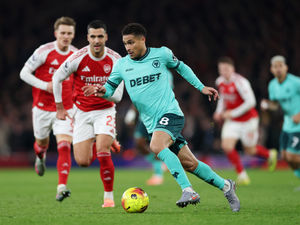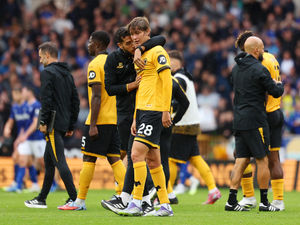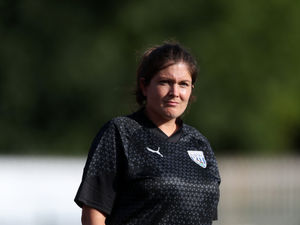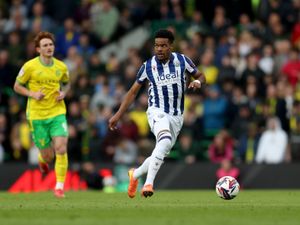Johnny Phillips: A new rivalry driven by sheer footballing excellence
Before the two clubs met earlier this month, there was plenty of talk about the nature of the rivalry between Manchester City and Liverpool.
For a second time in four years, the two clubs look set to fight for the Premier League title until the final day of the season. Go back to 2013/14 and they were locked in a similar last day battle, too.
The two teams met in the FA Cup semi-final last Sunday, both have made it through to the last four of the Champions’ League and in midweek, back in league action, the pair showed just why they stand head and shoulders above everybody else in the top division.
To describe the rivalry between the two clubs in terms of greatness would not be accurate, though. It is the quality of the competitiveness that stands out, not the rivalry.
Rivalries are strange concepts. Most are governed by geography, with local derby matches seen as the traditional fixtures between two foes in this country.
There have been exceptions, though. An animosity on the pitch and on the terraces built up between Chelsea and Leeds United during the 1970s.
It began with the 1970 FA Cup final replay, widely regarded as one of the most physical games ever played on these shores, which was won by the Londoners.
For the next decade and more the terraces were similarly characterised by confrontations between the infamous hooligan firms Leeds Service Crew and Chelsea Head Hunters as they battled it out along the lines of a north-south divide.
That rivalry has long-since diminished. Even Ken Bates, the notorious Chelsea chairman for over two decades, crossed the divide when he bought Leeds in 2005.
A more long-lasting tradition of loathing, even when the respective football teams were not on the same page, exists between Liverpool and Manchester United.
This has its roots in the economic and cultural feuds between the two cities, stemming from the construction of the Manchester Ship Canal in the late 19th century which bypassed the need to trade with the port of Liverpool and shifted the balance of economic prosperity between the cities.
A competitive music scene has existed for decades between the two cities, although there is more mutual respect in that regard. And alongside it all the country’s two most successful football clubs have enjoyed long periods of domination, as the other went through the doldrums.
In the Premier League era, the big rivalry that has transcended local derby status is unquestionably between Arsenal and Manchester United. The pair won nine consecutive titles between them in the period between the mid-1990s and mid-2000s.
Only the billions of Roman Abramovich were able to drive a wedge between the two.
Alongside that, a great managerial duel built up between a working class Glaswegian and a cosmopolitan Frenchman. Sir Alex Ferguson was deeply suspicious of Arsene Wenger’s methods from the moment he arrived in 1996.
The Scot had constructed a side with strong local roots. Wenger looked to the continent for his flair and built a free-flowing side of his own.
By 2003/04 the feud had turned ugly. Wenger’s Invincibles will always be remembered for the way they surrounded Ruud Van Nistelrooy after he missed a penalty at Old Trafford. A year later the Battle of the Buffet at the same ground ended with Cesc Fabregas throwing a slice of pizza at Ferguson during a confrontation in the players’ tunnel at the end of United’s win.
It was its longevity which made the rivalry stand out, for 17 years the two great managers locked horns.
Which brings us to the two outstanding head coaches of their generation today.
Pep Guardiola and Jurgen Klopp’s rivalry predates their Premier League arrival. It goes back to the mid-2010s when they took charge of Der Klassiker opponents Bayern Munich and Borussia Dortmund.
The pair are not close but there is certainly none of the Ferguson/Wenger antagonism.
They have built two phenomenal sides.
On Tuesday night we saw the gegenpressing heavy-metal football of Klopp’s Liverpool; the relentless surges forward and physical domination over a United side who could not live in the cauldron.
The only thing Ralf Rangnick’s side did with any conviction was throw in the towel.
The technical ability at such a frenetic pace is something to admire about Klopp’s side, it is near impossible for opponents to live with it.
Then on Wednesday evening we witnessed a different way to throttle an opponent. It was fascinating to watch at close quarters.
Manchester City’s stranglehold over Brighton lasted from first minute to last. It was so complete that Brighton manager Graham Potter had no issue with his own side’s efforts when he acknowledged a gulf in class.
Speaking with Potter after the match, it was interesting to hear his response as an opposition manager who’d faced such an onslaught.
“In the end, the quality of opponent means you are going to concede,” Potter explained. “They are so good at driving you back, you need to be perfect [to stop them]. I can’t fault my players but the better team won, clearly. There is no shame from that.”
What Liverpool and City have built is not a rivalry in the sense of the brutishness of Leeds and Chelsea, nor the cultural clashes of United against Liverpool, and it is certainly nothing like the colourful acrimony that laced the brilliance of Arsenal and United’s rivalry.
This current head-to-head is sheer competitive excellence.
Driven on by each other’s qualities and form, the two sides have lifted an already high bar to the levels we have never seen previously.
It may not a rivalry in the sense of what has gone before, but we are watching a special contest.





